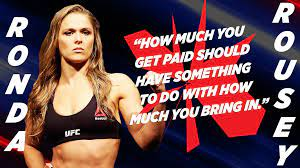That makes sense to me. I'm not sure the courts can sort that out WITHOUT considering the revenue athletes as professionals.
That's been the mistake. Using the passion and hard work of unpaid college athletes to make money, big money, finally made the courts say: Wait, you can't use these people in your business without compensating them.
Now the question is, can we expect the courts to say it's all about revenue whether you deserve pay or not but you're all still amateur athletes and not employees?
I don't see how it works unless the athletes are employees AND I don't see, given the Title requirements of schools, how they can get away with paying one and not paying another.
The model I favor most, so far, is not the "university employee" approach.
I prefer this idea:
* Start with NIL collectives, which allow boosters (fans with deep pockets) to legally pay athletes in appreciation for their service to the university team. That doesn't change in this model.
* But since that doesn't get at gate receipts or media income gathered by the university, we need to add a "school slice." This isn't NIL, as we know it today. This is separate. This is the university saying that since it gathered $xxx last year from football, each football player will receive a share. It may be small, like one-tenth of one percent to each student, but something. Same for the basketball team: the sport generates revenue, so shares go out to the players. Same for the swim team,
if people ever start paying to go to their meets or watch them on TV.
So a player in a non-revenue sport, like Olivia Dunne at LSU, still has the right to benefit financially from her being, her NIL. But she doesn't get any shares from the university because gymnastics doesn't generate revenue. Meanwhile, a football player benefits by receiving his share from the University's profits in the sport. And if he's a guy like Nico, he can receive both NIL income from Spyre (the boosters, basically)
and a share of the school's profits.
I call this the "booty" model, because it works kinda like pirate crews often did. The pirates weren't normally employees of the captain, the head pirate. They were all independent, and could sign on for, or turn down, each cruise (kinda like players using the transfer portal). So their compensation was agreed in shares of the loot. Common seamen might get a quarter-share, while the officers got a full share and the captain got a double or triple share.
Add up all the crew by their share value, and you get a total number. Divide the loot by that number, and you know how much one share is worth. Then sell the loot, get cash, and pass it out when you get back to port.
The booty model would work just fine in college sports. Let the student athletes remain student athletes, not employees. But compensate them based on the revenue they and all their teammates and coaches generate.
An example: say UT grosses $200m in gate receipts, parking lots, and media contracts in 2025. And say $150m of that is poured back into facilities, scholarships, and paying for the non-revenue-generating sports, leaving $50m in profit. And say it has been pre-determined that the head coach receives 12 shares, his OC and DC each get 3 shares, and all other coaches are paid 1.5 shares. GAs, analysts, nutritionists, etc. all get a fifth of a share. Players (scholarship and non-scholarship alike) get a tenth of a share.
So let's add it up: 12 (HC) + 3 (OC) + 3 (DC) + 12 (the other 8 Asst Coaches) + 20 (the 100 GAs and analysts) +12.5 (125 players on roster) == 62.5 shares.
That means the $50m profit, divided by 62.5 shares, yields $800k per share.
-- Head Coach gets 12 shares times $800k per share = $9.6m
-- OC and DC get 3 * $800k = $2.4m
-- Other asst coaches get 1.5 * $800k = $1.2m each
-- GAs and analysts get 0.2 * $800k = $160k each
-- Players receive 0.1 * $800k = $80k each.
And each year the loot is divvied up that way.
That keeps the Colleges and Universities in the US out of the business of professional sports, but still allows them to share the profits of their media rights deals and gameday activities with ALL the people involved in putting a product in the stadium.
Go Vols!



